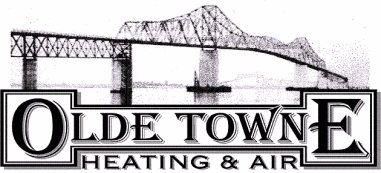
We spend a lot of time in our homes. As a matter of fact, the Environmental Protection Agency (EPA) has approximated being inside comprises 90% of our days. Although, the EPA also says your indoor air can be three to five times more polluted than outdoors.
That’s due to the fact our houses are firmly sealed to boost energy efficiency. While this is great for your energy bills, it’s not so great if you’re amid the 40% of the population with respiratory allergies.
When outdoor ventilation is restricted, pollutants including dust and volatile organic compounds (VOCs) could get trapped. Consequently, these pollutants can aggravate your allergies.
You can improve your indoor air quality with crisp air and routine dusting and vacuuming. But if you’re still having problems with symptoms during the time you’re at your residence, an air purifier could be able to provide relief.
While it can’t remove pollutants that have landed on your furniture or flooring, it could help purify the air moving across your house.
And air purification has also been scientifically proven to help lower some allergic symptoms, according to the American College of Allergy, Asthma and Immunology. It may also be helpful if you or a loved one has lung issues, like emphysema or COPD.
There are two models, a portable air purifier or a whole-home air purifier. We’ll discuss the advantages so you can learn what’s correct for your residence.
Whole-House Air Purifier vs. Portable Air Purifiers
A portable air purifier is for a lone room. A whole-house air purifier works with your HVAC equipment to clean your entire residence. Some models can work on their own when your heating and cooling equipment isn’t operating.
What’s the Best Air Purifier for Allergies?
Look for a purifier with a High Efficiency Particulate Air (HEPA) filter. HEPA filters are used in hospitals and provide the most comprehensive filtration you can get, as they trap 99.97% of particles in the air.
HEPA filters are even more beneficial when installed with an ultraviolet (UV) germicidal light. This dynamic mixture can eliminate dust, dander, pollen and mold, all of which are common allergens. For the ultimate in air purification, evaluate equipment that also has a carbon-based filter to decrease household vapors.
Avoid buying an air purifier that makes ozone, which is the top element in smog. The EPA warns ozone could aggravate respiratory issues, even when emitted at small amounts.
The Allergy and Asthma Foundation of America has made a listing of questions to consider when purchasing an air purifier.
- What can this purifier remove from the air? What doesn’t it remove?
- What’s its clean air delivery rate? (A bigger number means air will be cleaned faster.)
- How frequently does the filter or UV bulb need to be switched]? Can I finish that by myself?
- How much do replacement filters or bulbs cost?
How to Reduce Seasonal Allergy Symptoms
Want to have the {top|most excellent|best] results from your new air purification equipment? The Mayo Clinic suggests taking other steps to reduce your exposure to things that can trigger seasonal allergies.
- Stay in your home and keep windows and doors closed when pollen counts are high.
- Have other household members trim the lawn or pull weeds, since this work can irritate symptoms. If you have to do this work on your own, consider using a pollen mask. You should also shower without delay and put on new clothes once you’re done.
- Avoid drying laundry outside.
- Run air conditioning while indoors or while driving. Consider using a high efficiency air filter in your residence’s home comfort system.
- Equalize your residence’s humidity saturation with a whole-house dehumidifier.
- Hardwood, tile or linoleum are the best flooring materials for lowering indoor allergens. If your house has carpet, install a HEPA filter on your vacuum cleaner.
Let Our Specialists Handle Your Indoor Air Quality Needs
Ready to take the next step with adding a whole-house air purifier? Give our experts a call at 843-485-0967 or contact us online to request an appointment. We’ll help you choose the right system for your family and budget.
